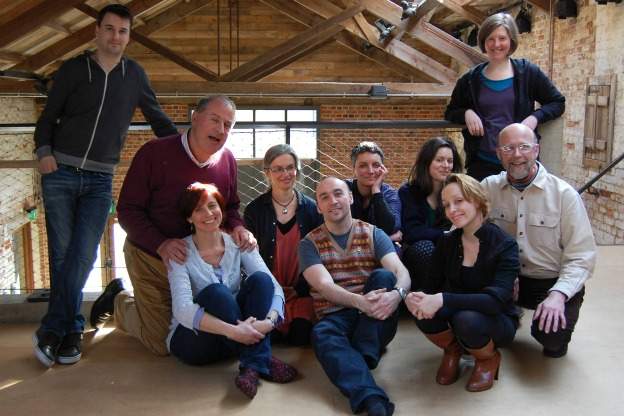
Concerto Caledonia's 2015 Delphian release called Purcell's Revenge, certainly colors outside the lines of what we've come to expect when we pick up a recording of music by Henry Purcell.
Their recording blurs established lines, arguing that the separation of classical music from the rest of modern mainstream music making was a 20th-century distinction, one that has of late even pervaded early music circles.
The Early Music Movement of the 1960's and 1970's
The people who brought early music to the fore in the 1960s and 70s pioneered a new way of doing things. Historical performance on what we used to call "authentic" instruments caught on in a big way and soon fed an early music recording boom. Though keeping its pioneering spirit, over the years many see a homogenization of what constitutes an "early music" sound-a sort of accepted standard for how baroque music should be heard and performed.
And yet, that very homogenization is somewhat antithetical to both the inventive and improvisatory hallmarks of baroque music and the roots of the 20th-century early music revival.
Along these lines, Bruce Haynes published a noteworthy book that made its rounds a few years ago called The End of Early Music that argued for more experimentation in the way today's performers approach the music of the past.
The Spirit of Invention
Concerto Caledonia has perhaps taken experimentation to the extreme, and in doing so, they can't stake a claim on historicity.
Certainly "music as it would have been heard in Purcell's time" can't include mics and electric guitar, but if there is any historical authenticity to be had, and I think there is, it's an exploration of the spirit of invention that was the Baroque.
You can compare the way we often hear Purcell to Concerto Caledonia's interpretation:
Not your everyday Purcell
In Concerto Caledonia's version, countertenor and period instruments are replaced by folk singer-songwriter Olivia Chaney* with piano, harmonium, recorder, nyckelharpa, lyra d'amore, bass viol, harpsichord, organ, harp and electric guitar.
Several different singers take turns on this recording, and some sound more like Sarah McLachlan or Norah Jones than Andreas Scholl or Emma Kirkby. It's nice having the wide assortment of voices and styles along the way, and a couple tracks are devoted to the songwriters own material.
Every now and then though, we do get that "early music-y" sound, such as in Purcell's four part fantasy no. 11. But mind you, the consort Caledonia assembles isn't your run-of-the-mill consort of instruments including besides recorder organ and viol in this performance, nyckelharpa, hook harp, and dulcitone.
There is also a version of "Old Sir Simon the King," a well-loved tune found in lots of 17th century English source including The Division Violin and Musick's Handmaid. Chances are, though, that you've never heard it with a lead harmonica.
Early Music Inspired
You could call this a crossover recording, yet it seems to defy categorization. Folk? Pop? Roots? Traditional? Rock? Classical? Perhaps the best description would be "early music inspired."
Listeners may either love or hate this offering from Concerto Caledonia. At the very least, recordings such as this one keep the conversation going.
*Mis-identified as Olivia Chancey in the podcast audio.









